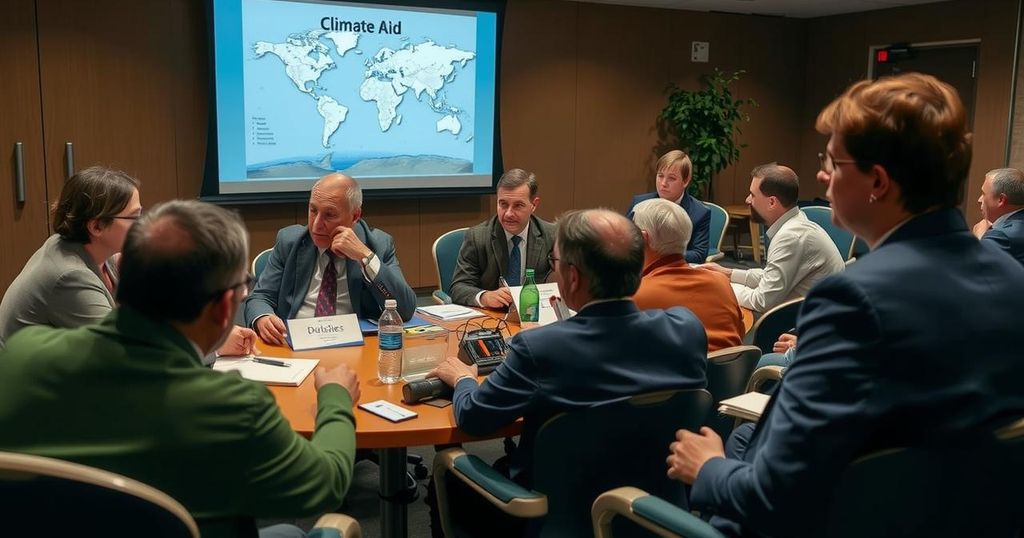Experts Critique COP29 Climate Funding Agreement as Insufficient
At COP29, the commitment from developed countries to raise climate funding to $300 billion by 2035 was met with criticism, as experts assert it does not meet the $5.8 trillion needed by 2030 by developing nations. The negotiations extended past schedule, raising questions about their effectiveness. Key figures underscore the urgency for more substantial climate aid, citing the continuing rise in global emissions and climate impacts on vulnerable regions.
At COP29, developed countries proposed to increase climate financing from $100 billion to $300 billion annually by 2035, aiming to assist developing nations in enhancing their renewable energy infrastructure and adapting to severe climate change impacts. However, experts assert that this commitment falls short of the $5.8 trillion that developing countries require by 2030. Negotiations extended late into the night, raising concerns about the efficacy of the current negotiation format. Previous COP conferences faced similar challenges in reaching consensus regarding climate obligations and losses faced by vulnerable nations. UNFCCC Secretary-General Simon Stiell emphasized that the new financing target is an essential step, contingent upon timely and full contributions from wealthier nations. Critics, however, highlight that climate action must accelerate given that global emissions continue to rise. Although the funding goal appears inadequate, some advocates remain hopeful that it could be a foundational step toward meeting urgent climate needs.
The UN climate negotiations, held under the UN Framework Convention on Climate Change (UNFCCC), aim to address the growing impacts of climate change, particularly on developing nations that contributed minimally to global warming. As countries meet annually at COP (Conference of the Parties), discussions often center around financial commitments, emission reduction strategies, and adaptation measures needed for those most affected. A significant report from the UN indicated that developing countries require trillions to mitigate existing and future climate risks, emphasizing the urgency of substantial financial backing from developed nations, especially those historically responsible for greenhouse gas emissions.
The discussions at COP29 have illuminated the pressing need for more ambitious climate financing that aligns with the scale of challenges faced by developing nations. Despite the pledges made, experts believe they are insufficient and inadequately timed, necessitating immediate action to curb rising emissions and mitigate climate impacts. Future negotiations must therefore evolve to better address these urgent financial needs and facilitate effective climate action.
Original Source: e360.yale.edu




Post Comment